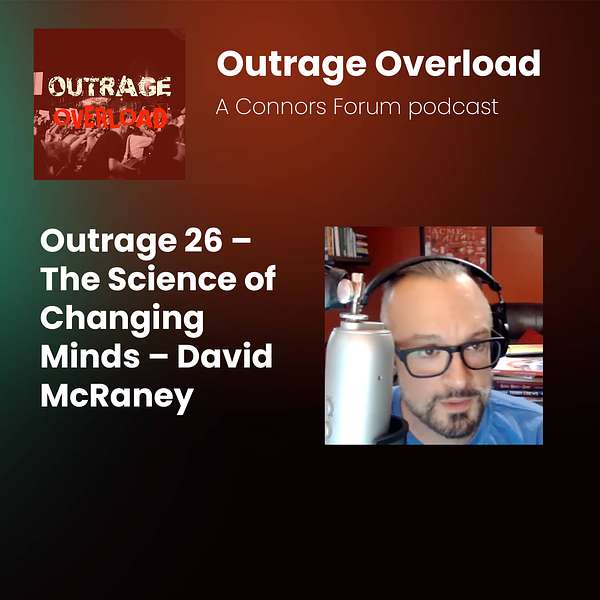
Outrage Overload: Staying grounded through science and balanced perspectives
If you're angry, frustrated, or scared about the state of politics and media and looking for thoughtful, balanced discussions, this podcast is for you. About 30 minutes every few weeks. It will change your life.
Outrage Overload explores the extreme polarization and political bias dominating politics and media today. We dive into the anger and outrage that drive divisions between people, distort the news, and fuel political violence. Each episode features leading scientists, researchers, authors, and community leaders tackling topics like outrage fatigue, toxic polarization, extremism, healthy conflict, disinformation, social media's role in outrage, and the influence of technology and artificial intelligence.
Join us to rediscover humanity in your rivals, improve your mental health, and find practical strategies to feel less stressed and more in control in a world fueled by outrage.
Outrage Overload: Staying grounded through science and balanced perspectives
26. The cascade process is a way that minds change at scale - David McRaney
Outrage 26 – The Science of Changing Minds
David McRaney discusses the concept of changing minds and the challenges of political polarization.
He emphasizes the importance of understanding why we want to change someone else's mind and explores the motivations behind our own beliefs. McRaney explains that changing minds requires more than just presenting facts and information. It involves engaging in meaningful conversations, exploring different perspectives, and understanding the underlying motivations and biases that shape our beliefs. He also discusses the cascade effect and how it can be used to scale up the process of changing minds.
Key Takeaways:
- Changing minds requires understanding our own motivations and biases.
- Presenting facts and information alone is not enough to change someone's mind.
- Engaging in meaningful conversations and exploring different perspectives is essential for changing minds.
- The cascade effect can be used to scale up the process of changing minds.
About The Guest:
David McRaney is a science journalist, author, podcaster, and lecturer. He is the host of the podcast "You Are Not So Smart" and the author of the book "How Minds Change." McRaney is known for his work in psychology, neuroscience, and social sciences.
Show Notes:
https://outrageoverload.net/
Follow me, David Beckemeyer, on Twitter @mrblog or email outrageoverload@gmail.com. Follow the show on Twitter @OutrageOverload or Instagram @OutrageOverload. We are also on Facebook /OutrageOverload.
HOTLINE: 925-552-7885
Got a Question, comment or just thoughts you'd like to share? Call the OO hotline and leave a message and you could be featured in an upcoming episode
If you would like to help the show, you can contribute here. Tell everyone you know about the show. That’s the best way to support it.
Rate and Review the show on Podchaser: https://www.podchaser.com/OutrageOverload
Intro music and outro music by Michael Ramir C.
Many thanks to my co-editor and co-director, Austin Chen.




